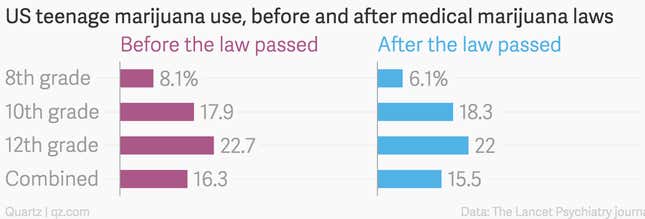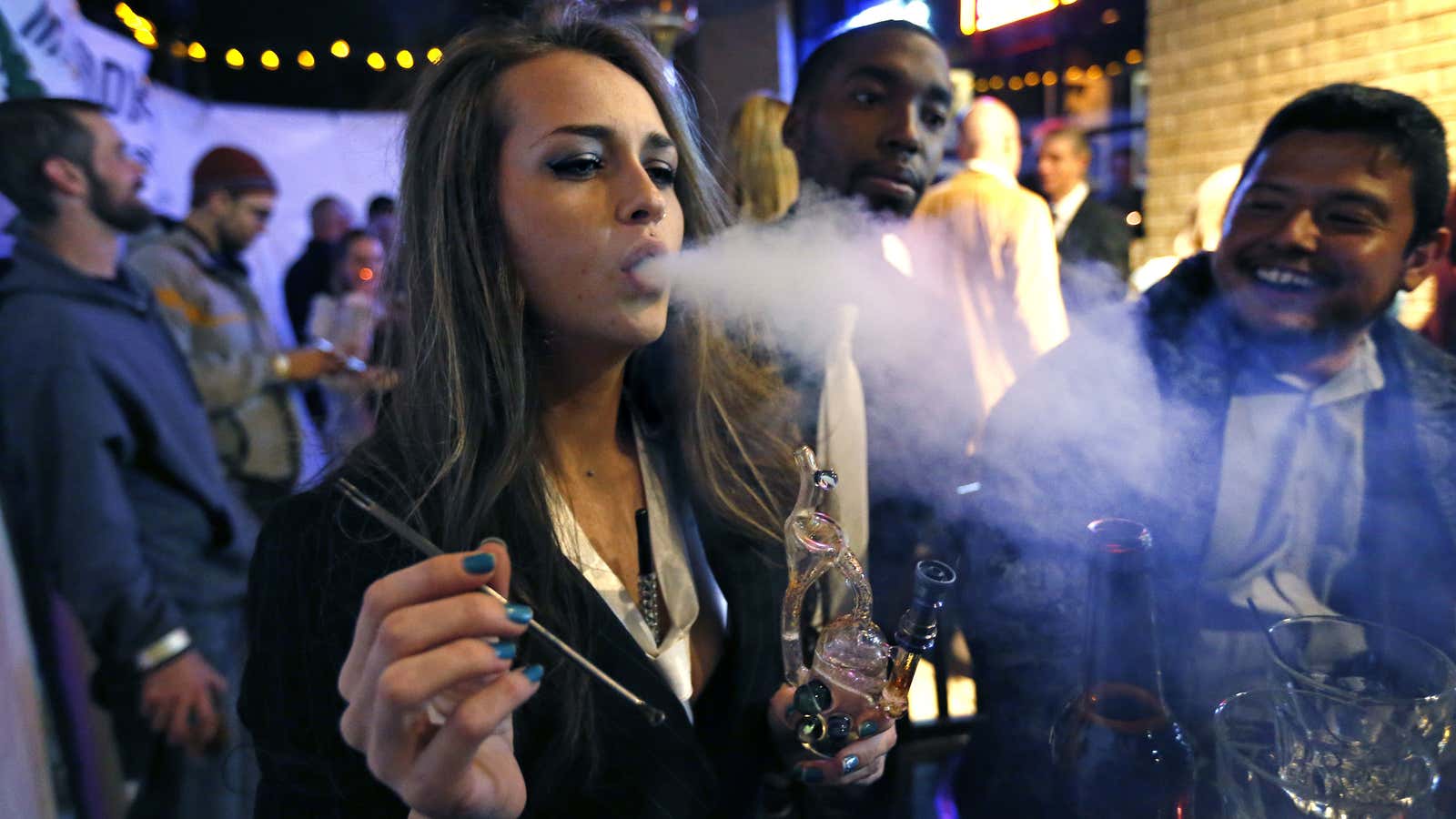A major fear about legalizing medical marijuana in the US has been that it would make the drug more accessible for young people to use recreationally.
So far that hasn’t been the case, according to a new study published in the journal Lancet Psychiatry.
By examining periodic survey results of teenagers in 8th, 10th and 12th grade in the 48 contiguous states from the Monitoring the Future study, the researchers found that the passage of medical marijuana laws had no significant effect on teenage usage. The study asked more than a million teens between 1991 and 2014 whether they had used marijuana in the last 30 days. Of those states, 21 had legalized medical marijuana in some form by 2014. Marijuana has been found to have adverse effects on people who started using it as teenagers, and many see medical marijuana laws as the gateway to legalizing recreational use, as states like Colorado and Washington have done. The number of teens who said they used the drug, however, didn’t change significantly after the laws passed.

Over the 24-year period, the teenagers in US states with legalized medical marijuana did say they used more of the drug than the ones in states where it’s still criminalized, the study found. But the data suggest that the greater reported usage wasn’t due to the drug being partially legalized, since overall the numbers within states didn’t change after a law had passed.
The authors note that legalizing general use might cause teenagers to use marijuana more, but they didn’t look at the effect of changing laws on recreational use.
Marijuana use has increased overall in the US in the last decade. But for the teenagers in this study, it peaked in the late 1990s and has not reached those levels since. Marijuana use among these teenagers has actually been decreasing over the last five years.
